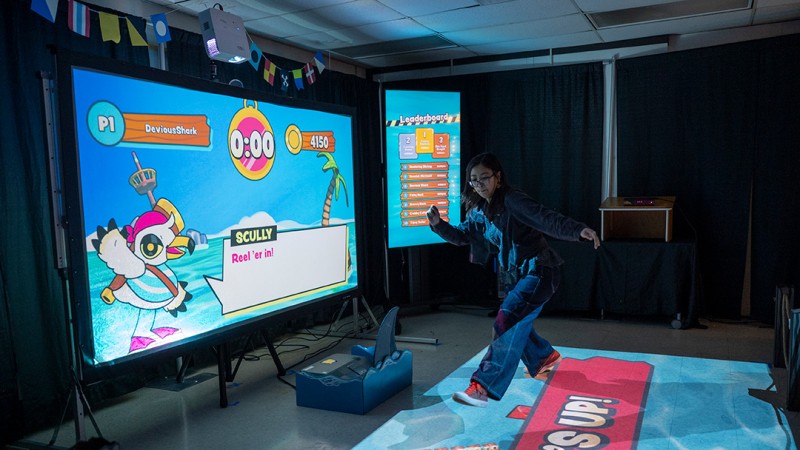School of Interactive Games and Media
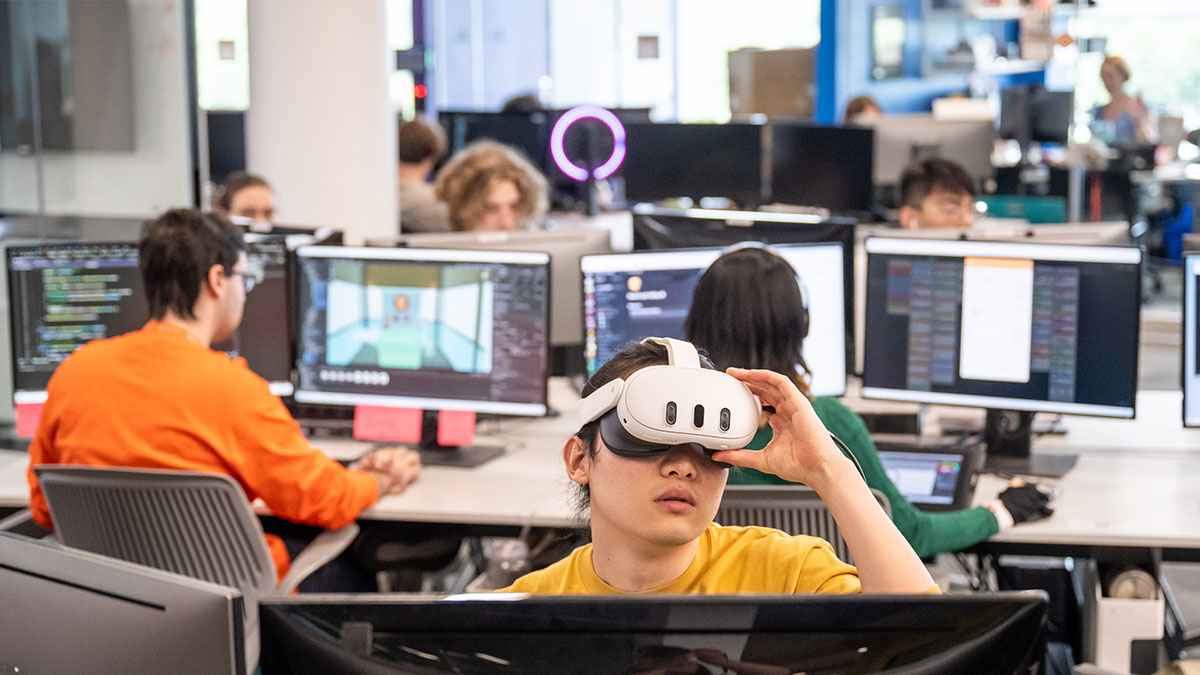
School of
Interactive Games and Media
- RIT/
- Golisano College of Computing and Information Sciences/
- Academics/
- Departments and Schools/
- School of Interactive Games and Media
Contact
State-of-the-art facilities like MAGIC Spell Studios, where you'll get to work with industry-standard tools and collaborate with student and faculty experts to bring your vision to life.
Community of engaged students and faculty, including one of the nation's largest Esports organizations.
Renowned co-op program, ranked 5th in the nation by US News & World Report for "hands-on career prep."
6th
Top undergraduate game design program, according to Princeton Review, 2025
12th
Top animation schools and colleges, Animation Career Review 2025
3rd
Ranked game design program, US News & World Report 2025
Overview
The School of Interactive Games and Media (IGM) comprises faculty from a variety of academic backgrounds with a shared interest in computing as it relates to interactive media, games, simulations, VR/AR, experimental interfaces, and media-centric systems of all varieties. IGM provides an educational environment that supports and encourages creative and collaborative academic inquiry by both faculty and students. IGM’s programs, coursework, research, and development efforts provide students with the knowledge and skills to pursue meaningful and rewarding careers in media-centric, interactive software development, while simultaneously advancing the field and helping to provide a well-rounded educational experience.
Undergraduate Programs
The game design and development major empowers students to explore the entertainment technology landscape and related areas, while still pursuing a broad-based university education. The degree is intended specifically for students who aspire to hold careers within the professional games industry or a related field, such as simulation, edutainment, or visualization.
RIT’s game design BS is ranked 6th among Top 50 Undergraduate Game Design Degrees, according to the 2024 international rankings from The Princeton Review.
Learn more about the Game Design and Development BS programRIT’s new media interactive development degree adapts digital technologies for social software, wearable devices, touch interfaces, virtual/augmented reality, and more.
Learn more about the New Media Interactive Development BS programGraduate Programs
The Master of Science degree in game design and development covers the breadth of the game development field through course work in topics such as computer graphics, game engines, interactive narrative, and game design. The degree is specifically for students who aspire to careers within the professional gaming industry or a related field such as simulation, edutainment, or visualization.
Earn a Ph.D. in computing from RIT. Conduct advanced research with expert faculty and explore challenges in and beyond computing.
Learn more about the Computing and Information Sciences Ph.D. programRIT’s game design MS degree is ranked 8th among top universities in the world for students who want to study and create games, according to the 2024 international rankings from The Princeton Review.
Learn more about the Game Design and Development MS programMinors and Immersions
The game design minor is intended for students outside of technical computing majors who want to explore the process and principles of game design and the associated theories of interactive media. The minor provides an introductory experience to media-centric software development that enables students to prototype and test their own designs.
Learn more about the Game Design Minor programThe game development minor is intended for students studying in a technical field who want to combine their knowledge and skill in software development with the media-centric approach to application design that is exemplified in the professional games and simulation industries. The minor defines a series of courses that build upon students’ existing knowledge in computing, physics, and mathematics to explore the design principles of games and interactive worlds through the creation of prototypes and software projects.
Learn more about the Game Development Minor programAs the world grows in complexity and interconnectedness, new challenges arise in visually representing, reasoning, and making sense of spatially-oriented problems and data. The geographic information systems immersion allows students to study geographic problem solving and scientific inquiry from an interdisciplinary perspective of interactive, digital mapping tools and related digital data problem solving technologies. Students are introduced to geographic mapping concepts and theory, digital cartography, geographic problem solving with geospatial and related computer tools, geospatial technology ethics and application of GIS to global problems such as natural disasters.
Learn more about the Geographic Information Systems Immersion programThe geographic information systems (GIS) minor provides students with experience in the concepts, technology, and applications related to computer-based mapping, spatial databases, and geographic analysis and problem solving. The minor features two tracks: a GIS development track for students interested in GIS software development, and a GIS analysis track for students interested in utilizing GIS as a strong methodological base within their major of study. Required courses provide core GIS foundations applicable to a variety of multidisciplinary elective courses students can choose from to match their research, post-graduate, or career interests.
Learn more about the Geographic Information Systems Minor programLatest News
-
March 5, 2026
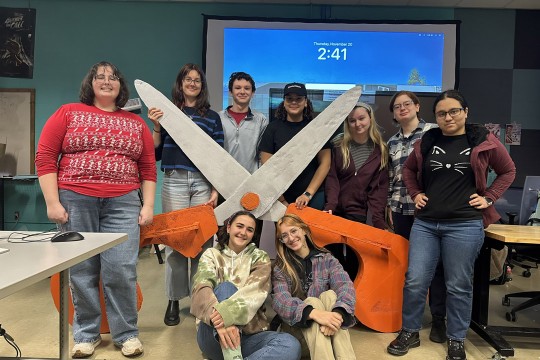
Students to showcase alternative controllers at Game Developers Conference
As part of a collaborative capstone project, students from new media design and new media interactive development are creating interactive experiences with alternative controllers. Three of the projects will be exhibited at the Game Developers Conference Festival of Gaming next week.
-
February 26, 2026
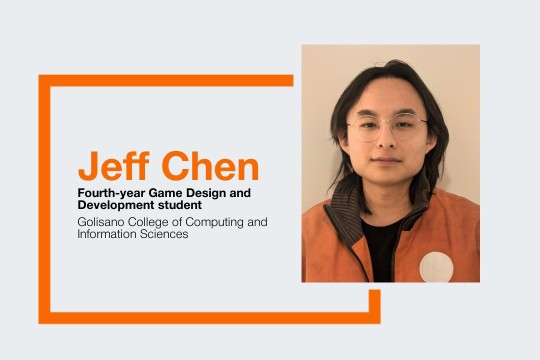
Award-winning writing sends student to Game Developers Conference
Jeff Chen’s analysis of the game In Stars and Time has earned him the Game Developers Conference Game Narrative Review program’s prestigious Gold Prize, which enables him to give a talk and present a poster at the annual event in March.
-
February 12, 2026
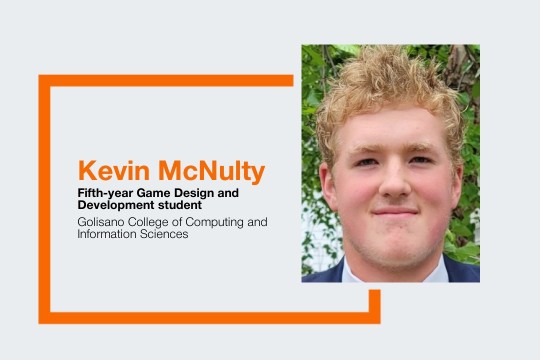
Student Producer Program develops leaders capable of taking projects to the finish line
By offering real-world experience managing teams and clients, MAGIC Spell Studios’ new Student Producer Program presents students with unique opportunities to fully engage in digital media projects under development.
Research Areas
IGM faculty advance their knowledge and practice across many disciplines, encompassing a wide range of topics that incorporate games and interactive media. Common areas include serious games, interactive experiences, and engine development, and you can view the expanded topic list here. Throughout students’ tenure in both undergraduate and graduate programs, they gain opportunities to work with our faculty on their research.
For more information about IGM faculty and access to research about games and media across RIT, please access the following links:
- IGM Research
- Key Research Areas in Golisano College of Computing and Information Sciences
- Research at RIT
Featured Work and Profiles
-
RIT-created virtual reality game Changeling VR arrives on Steam
Elouise Oyzon More than 300 RIT students have published Changeling VR, a new narrative mystery game on Steam.
Read More about RIT-created virtual reality game Changeling VR arrives on Steam -
NMID students create award-winning interactive game experience
Best Interactive Project winner Overboard was developed in partnership with the Strong Museum of Play, the world's largest museum dedicated to play.
Read More about NMID students create award-winning interactive game experience -
Grad’s job is all fun and games
Rohit Crasta, lead game designer for The New York Times, helps create some of the most popular digital puzzles
Read More about Grad’s job is all fun and games -
Finding Passion Through Exploration: Student Embraces Cross- Disciplinary Collaboration in NMID
Nick Will ‘25 credits hands-on opportunities to explore computing disciplines and support from the RIT community for his personal and professional growth.
Read More about Finding Passion Through Exploration: Student Embraces Cross- Disciplinary Collaboration in NMID -
Student Innovations at Game Jam Scores Multiple Wins
A game jam is the perfect blend of creativity, caffeine, and crunch – and in the November WolfJam, RIT students mastered all three.
Read More about Student Innovations at Game Jam Scores Multiple Wins -
RIT Alumni Are Gamifying the Stock Market
Erin Graham Gamifying the every day is one of the best things technology has allowed us, from productivity apps to games that bring the fun back to exercising. But what about something fun to teach us new skills,...
Read More about RIT Alumni Are Gamifying the Stock Market
Interactive Media Symposium
Step into the hub of Interactive Media at RIT during this year’s inaugural Interactive Media Symposium hosted by the School of Interactive Games and Media (IGM). Celebrating the academic and practical achievements of the RIT creative community, this event brings together students, faculty, alumni, and industry professionals in one space.
Join us in person in the MAGIC Spell Studios on Saturday, April 11th, 2026 for a great day of learning and celebration!
Industrial Advisory Board
The IGM Industrial Advisory Board (IAB) consists of a broad range of industry representatives. The board helps us stay current with industry trends, offering insight on everything from curriculum to teaching methods. IAB plays an integral role in helping us maintain a balanced, vibrant school.






